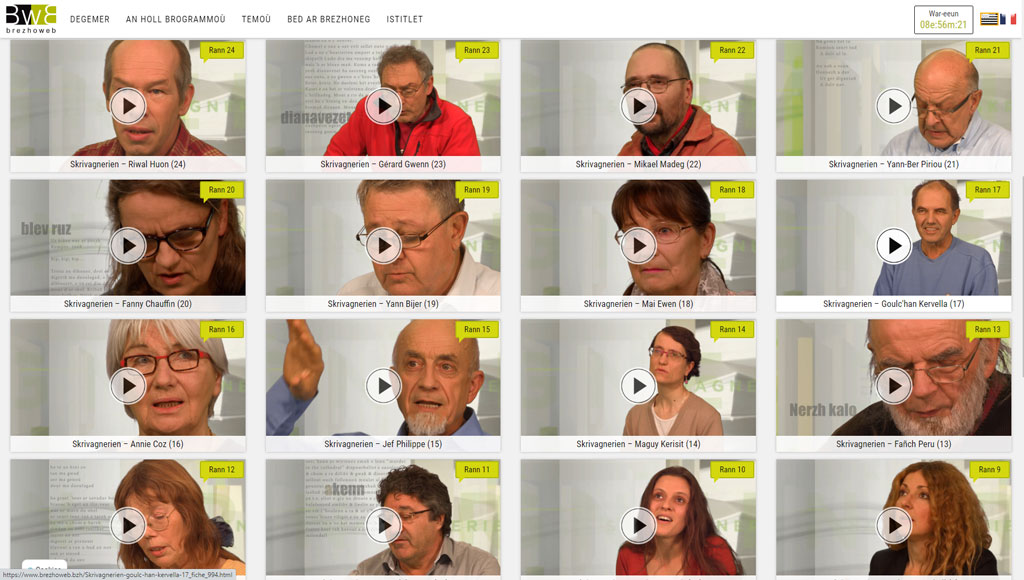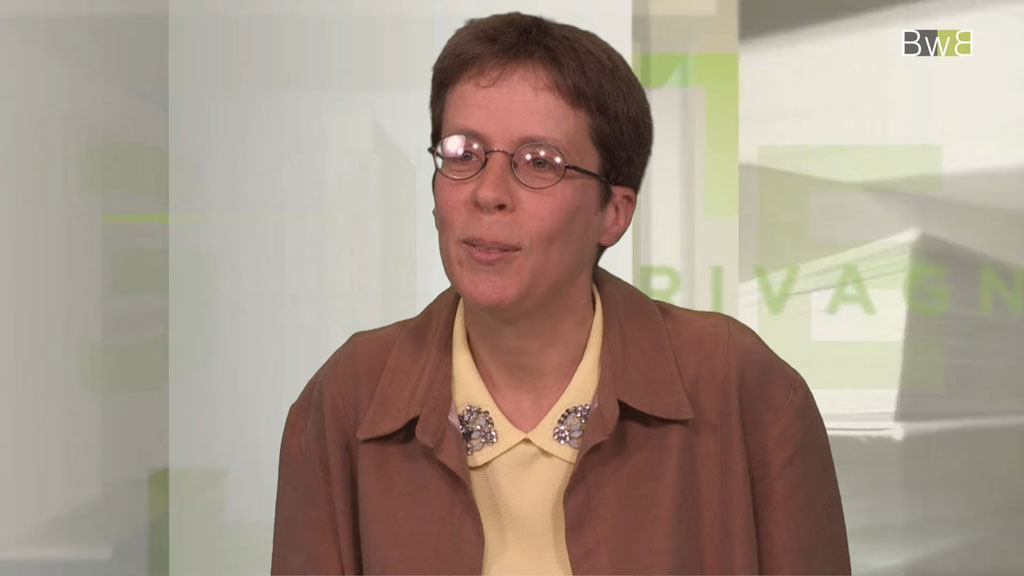Unit 1. Brezhoneg. Writing in a minority language
Writing in Breton language
Breton is a language that UNESCO classifies as a language in great danger. To keep it alive and dynamic, there are several levers, literature being one of them. But writing in a minority language is often a challenge and requires commitment, will and motivation from the authors. Being a reader also means understanding this commitment.
OBJECTIVES
- Understand the dynamism of Breton literature today.
- Understand the motivations of the authors.
- Understand the stakes of this literature for a language that finds its place in the world today.
- Improve linguistic skills based on the documents used for the teaching unit.
- Learn to become an engaged reader.
METHODOLOGY
Cooperative learning (teamwork).
Search for information (use of knowledge and learning technologies, LKTs).
Oral comprehension and expression work.
Written expression work
KEY COMPETENCIES
CCL. Competence in linguistic communication.
CLL. Competence in learning to learn.
SCC. Social and civic competences.
CAE. Cultural awareness and expression.

BIBLIOGRAPHY
Francis Favereau (dir.), Anthologie de la littérature de langue bretonne au XXe siècle, Skol Vreizh, Morlaix, tome I, Entre rêve et réalité, 1900-1918 (2002, 445 p.) ; tome II D’une guerre à l’autre : Breiz Atao et les autres en littérature, 1919-1944 (2003, 575 p.) ; tome III, De 1945 à 1968 (2008, 510 p. ; tome IV. Effet mai 68 et décennies de métissage. (2020, 480 p).
EVALUATION
• Continuous observation of student progress
• Article about the writer’s visit to the classroom to be published in the school newspaper or on the school’s website.·
OPEN EDUCATIONAL RESOURCES
I. Interview of David ar Gall, a breton writer.
Look at the video once.
CARD 1: REMEMBERING
Describe what you saw and understood.
CARD 2: IDENTIFYING
- Look once again time at the video
- Identify the different parts of the video.
CARD 3: SPEAKING
Watch the video one more time.
After watching to this video, what can you say about David ar Gall ? (the man : his age and his appearance, his books : how many, what kind…)
CARD 4: WRITING
Write a short text to introduce this author.
Look at the video several times.
CARD 1: UNDERSTANDING
Take notes while watching the video.
CARD 2: EXCHANGING
Divide the group in three parts and gather what you understood to try to answer these three questions :
- Writing novels or short stories ?
- Writing for adults or for children ?
- Writing in french or in breton
CARD 3: PRESENTING
Share orally the work done with the others groups.
Look at the video several times.
CARD 1: UNDERSTANDING
Take notes while watching the video.
CARD 2: EXCHANGING
- Role-paying game in pairs :
Prepare a role-playing game where an author who writes in a minority lanugage will advise a young writer. (you will use David ar Gall’s explanations) - Evaluate this exercise:
differences, arguments used…
CARD 3: EXCHANGING AND DEBATING
Debate in the classroom: Writing in a minority language, a good idea ?
II. Present a writer
Work in groups
Choose a writer among those on Brezhoweb’s internet site.
Listen to the interview.
CARD 1: UNDERSTANDING
Gather what you understood with the other members of the group.
CARD 2: LOOKING FOR INFORMATION
Search other informations (you can write to the writer too) on the writer you chose.
CARD 3: REPORTING
Set up an identity card (name, surname, born in…, studies, jobs…) and a bibliography (list of the books writen).
Work in groups
Choose a writer among those on Brezhoweb’s internet site
Listen to the interview.
CARD 1: UNDERSTANDING
Take notes while watching the video.
CARD 2: LOOKING FOR INFORMATION
Search other informations (you can write to the writer too) on the writer you chose.
CARD 3: REPORTING
- Prepare an oral presentation of that writer (you can go and search for more information on internet and you can also write to the writer).
- Present the writer you chose in front of the class
• Listen to the interview of Loeiza Beauvir
OR
CARD 1: UNDERSTANDING
Take notes while watching the video.
CARD 2: EXCHANGING
Search other information
Write to the writer you chose.
CARD 3: EXCHANGING AND DEBATING
Relying on the video, on other information you will search and on the answer you had to the mail you sent to the writer, you will write the Wikipedia page of the writer you chose.
III. Inviting a writer at school
BEFORE THE VISIT
Work in groups
CARD 1: IDENTIFYING AND MEMORIZING
- Chose a text written by this writer you will read together loud the day he/she ‘ll come.
- Prepare the reading.
THE DAY THE WRITER COMES IN THE CLASSROOM
CARD 2: INTERPRETING
- Read the text chosen in front of the writer.
- Film the interview.
THE DAY THE WRITER COMES IN THE CLASSROOM
Article about the writer’s visit to the classroom to be published in the school newspaper or on the school’s website.
CARD 3: PRESENTING
Write an identity card of the writer and the bibliography.
BEFORE THE VISIT
Work in groups
CARD 1: EXPLAINING
Prepare the welcome :
- how will you present the writer ?
- how will you present the class to the writer ?
THE DAY THE WRITER COMES IN THE CLASSROOM
CARD 2: INTERPRETING
- Present the writer in front of the camera.
- Welcome her/him
- Present the class to the writer
THE DAY THE WRITER COMES IN THE CLASSROOM
Article about the writer’s visit to the classroom to be published in the school newspaper or on the school’s website.
CARD 3: SUMMARIZING
Summarize the visit.
BEFORE THE VISIT
Work in groups
CARD 1: DISCUSSING AND CATEGORIZING
- Write the list of questions you’ll ask.
- See with the other groups if there are questions they would like to ask.
THE DAY THE WRITER COMES IN THE CLASSROOM
CARD 2: INTERPRETING AND EXCHANGING
- Ask the questions.
- React to the answers.
THE DAY THE WRITER COMES IN THE CLASSROOM
Article about the writer’s visit to the classroom to be published in the school newspaper or on the school’s website.
CARD 3: JUDGING AND EXPRESSING SENTIMENTS
Give your sentiment about this visit.

We want your feedback
Your opinion is important for us




